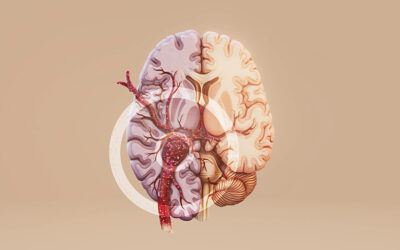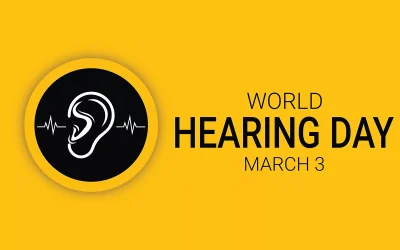Dizziness vs. Vertigo: What’s the Difference?

Nearly everyone has felt dizzy at some point in their life, whether from standing up too quickly, skipping a meal, or being unwell. But when the room feels as if it’s spinning even while you’re standing still, the experience is quite different. This is where people often confuse dizziness with vertigo. Though the terms are used interchangeably, they are not exactly the same and can point to different underlying health problems. Understanding the difference between dizziness and vertigo not only helps in describing symptoms accurately to doctors but also ensures that you get the right diagnosis and treatment. In this article, we will discuss the key differences, common causes, and when these balance problems should be taken seriously.
Table of Contents
ToggleDizziness vs Vertigo
Many people use the words dizziness and vertigo as if they mean the same thing, but they are actually different.
- Dizziness is a general term. It usually feels like lightheadedness, faintness, or being unsteady on the feet. Some people describe it as feeling “woozy” or as if they might faint.
- Vertigo is more specific. It is often defined as a feeling of rotation of self and surrounding.
There are two main types of vertigo:
- Peripheral vertigo: caused by inner ear problems.
- Central vertigo: caused by issues in the brain or nervous system.
In simple terms: all vertigo is a form of dizziness, but not all dizziness is vertigo. Knowing the difference is important, as it helps doctors figure out the correct cause and treatment.
Common Causes of Dizziness
Dizziness can arise from a wide range of medical conditions. Some of the most common causes include:
- Inner ear disorders: Conditions such as ear infections or vestibular neuritis can affect balance.
- Anaemia: Low red blood cell count reduces oxygen supply to the brain, leading to lightheadedness.
- Cardiovascular reasons: Irregular heartbeat, low blood pressure, or poor blood circulation can cause dizziness.
- Concussion or head injuries: Trauma to the head may disturb brain function and balance.
- Migraine headaches: Many people with migraines experience dizziness as a symptom.
- Anxiety and stress: Emotional distress can trigger feelings of unsteadiness.
- Dehydration: Lack of fluids can lower blood pressure, making a person feel faint.
- Low blood sugar: Common in people with diabetes, this may cause weakness and dizziness.
- Motion sickness: Travelling by car, plane, or boat can trigger dizziness in sensitive individuals.
Common Causes of Vertigo
Vertigo is usually linked to conditions that affect the inner ear or the nervous system. Some common causes include:
- Migraine headaches: Certain migraine types are associated with recurrent vertigo episodes.
- Stroke: Reduced blood flow to the brain can damage balance centres, triggering vertigo.
- Arrhythmia: Irregular heartbeat may affect blood supply to the brain and inner ear.
- Diabetes: Poorly managed diabetes can damage nerves and blood vessels, leading to balance problems.
- Head injuries: Trauma can disturb the inner ear or brain areas that control balance.
- Low blood pressure: A sudden drop in blood pressure can cause a spinning sensation.
- Vestibular disorders -BPPV, vestibular neuronitis .
These causes highlight why vertigo should not be ignored, as it may point to underlying medical conditions requiring timely care.
Symptoms That Help Differentiate Vertigo from Dizziness
While both vertigo and dizziness affect balance, the way they are experienced is different. Recognising these symptoms helps in identifying the correct condition.
- Dizziness symptoms:
- Feeling faint, woozy, or lightheaded
- A sense of imbalance or unsteadiness
- May be accompanied by weakness, blurred vision, or nausea
- Vertigo symptoms:
- A false sensation that the surroundings are spinning, tilting, or swaying
- Nausea and vomiting due to the spinning feeling
- Balance problems and difficulty walking straight
- Hearing loss or ringing in the ears (in cases linked to inner ear problems)
How Are Vertigo and Dizziness Diagnosed?
Since vertigo and dizziness can have many causes, doctors use a combination of history, physical examination, and tests to find the underlying problem.
- Patient history and physical examination: Doctors ask about symptoms, medical history, and triggers such as head movements, dehydration, or stress.
- Dix hall pike test and log roll test. Complete neurological examination which involves Romberg’s test , dysdiadokinesia amongst others .
- Hearing tests: Pure tone Audiometry to diagnose associated inner ear problem .
- Vestibular test – Videonystagmography is the gold standard .
- Imaging studies (MRI/CT scan): These scans help rule out stroke, brain tumours, or other brain conditions that may mimic vertigo or dizziness.
Accurate diagnosis is essential because treatment depends on the specific cause, whether it is an inner ear problem, anaemia, diabetes, or a neurological disorder.
Read more- From Ear Problems to Anxiety: Understanding Possible Causes of Vertigo
Can Vertigo and Dizziness Be Prevented?
Not all cases of vertigo or dizziness can be avoided, but simple lifestyle changes and good health practices can lower the risk.
- Stay hydrated: Dehydration is a common trigger for dizziness, so drink enough water throughout the day.
- Manage underlying conditions: Keep blood sugar, blood pressure, diabetes, and anaemia under control with regular check-ups and treatment.
- Reduce stress and anxiety: Relaxation techniques such as yoga, meditation, or breathing exercises may help prevent episodes.
- Avoid sudden movements: Standing up quickly or making rapid head turns can trigger symptoms.
- Eat balanced meals: Skipping meals or low blood sugar can cause dizziness, so maintain a healthy diet.
- Limit alcohol and caffeine: Both can affect the inner ear and nervous system, worsening symptoms.
When Should You Consult a Doctor?
Occasional dizziness or vertigo may not always be serious, but medical attention is necessary when symptoms are frequent, severe, or sudden. Seek medical help if you experience:
- Persistent dizziness or vertigo that does not improve with rest or hydration.
- Chest pain along with dizziness, which may indicate a heart-related problem.
- Sudden severe headache combined with balance problems, which could signal a neurological issue such as a stroke.
- High fever with dizziness, which may suggest an infection.
- Hearing loss, vision problems, or difficulty walking that appear with vertigo symptoms.
Early consultation with a doctor ensures timely diagnosis and treatment, preventing complications from conditions such as stroke, diabetes, or inner ear problems.
Read More: Empower Yourself to Protect and Improve Your Hearing
How Graphic Era Hospital Can Help with Vertigo and Dizziness
At Graphic Era Hospital, Dehradun, patients with vertigo and dizziness receive specialised care aimed at finding the root cause and providing lasting relief. Since these symptoms can come from different health issues, the hospital brings together experts and modern technology for accurate diagnosis and treatment. We offer:
Specialists for Complete Vertigo and Dizziness Care
- ENT specialists (Ear, Nose & Throat): To check inner ear problems and balance disorders.
- Neurologists: To evaluate brain- or nerve-related causes such as migraine or stroke.
- General physicians and internal medicine experts: To manage common triggers like anaemia, dehydration, or diabetes.
Advanced diagnostics
At Graphic Era Hospital, doctors use modern diagnostic tools to find out the exact cause of vertigo or dizziness. These may include:
- Hearing tests: To check for inner ear problems that may affect balance.
- Balance assessments: Special tests that measure how well the vestibular system (the body’s balance centre) is working.
- Blood tests: To rule out underlying conditions such as anaemia, diabetes, or infections that can trigger dizziness.
- Imaging scans (MRI/CT): Used when needed to detect brain- or nerve-related issues such as stroke, tumours, or neurological disorders.
Together, these tests give a complete picture of what is happening inside the body, helping specialists decide the most effective treatment plan.
Comprehensive treatment
Depending on the diagnosis, treatment may include medicines for vertigo or dizziness, vestibular therapy, lifestyle counselling, and management of underlying conditions such as diabetes, anaemia, or cardiovascular problems.
Patient-centred care
Doctors guide patients on home remedies, prevention tips, and follow-up care, ensuring both symptom relief and long-term well-being.
With expert doctors and advanced facilities, Graphic Era Hospital provides complete support for anyone struggling with balance problems, whether caused by vertigo, dizziness, or related conditions.
Final Takeaway
Although often used interchangeably, dizziness and vertigo are different experiences. Dizziness usually feels like lightheadedness or imbalance, while vertigo is the sensation that the surroundings are spinning or moving. Both can result from various health conditions, ranging from inner ear problems and migraines to anaemia, dehydration, or even stroke. Recognising the difference and seeking timely medical help is key to preventing complications and finding effective treatment.
For accurate diagnosis and expert care, consult the specialists at Graphic Era Hospital, Dehradun. Call 18008897351 today to book an appointment with our ENT doctors, neurologists, and general physicians for complete vertigo and dizziness treatment.
Frequently Asked Questions
Is dizziness always related to vertigo?
No. While vertigo is a specific type of dizziness, not all dizziness is vertigo. Dizziness may also be caused by anaemia, dehydration, stress, or cardiovascular issues.
Can stress cause vertigo or dizziness?
Yes. Anxiety and stress can trigger dizziness and, in some cases, contribute to vertigo episodes by affecting blood circulation and the nervous system.
How long does vertigo usually last?
Vertigo may last from a few minutes to several hours, depending on the underlying cause. In some cases, recurrent episodes may continue for weeks.
Are vertigo and dizziness symptoms of serious illness?
Sometimes. While mild dizziness may be harmless, persistent or severe vertigo could signal conditions such as stroke, inner ear disorders, or neurological problems.
What specialist should I see for vertigo or dizziness near me?
If vertigo or dizziness is linked to inner ear or balance issues, an ENT specialist is the right doctor to consult. If the problem seems to be related to the brain, nerves, or conditions such as migraine or stroke, a neurologist can help. For comprehensive evaluation and treatment in Dehradun, you can consult the experienced specialists at Graphic Era Hospital.
Can vertigo go away on its own?
Mild vertigo can resolve without treatment, but recurrent or severe cases usually require medical care to address the cause.
Are there exercises to reduce vertigo symptoms?
Yes. Vestibular rehabilitation therapy (VRT) and balance exercises, guided by specialists, can help reduce vertigo symptoms over time.
What are the most common causes of dizziness in adults?
Dehydration, anaemia, migraines, low blood sugar, heart rhythm issues, and stress are among the most common causes.
Can dehydration cause vertigo or dizziness?
Yes. Lack of fluids reduces blood pressure and affects brain function, leading to dizziness and sometimes vertigo-like symptoms.
How is vertigo diagnosed by an ENT specialist?
ENT doctors use hearing tests, balance assessments, and imaging studies to diagnose inner ear or vestibular system disorders.
What is the difference between lightheadedness and vertigo?
Lightheadedness feels like fainting or weakness, while vertigo creates a spinning or tilting sensation.
Can vertigo be a sign of a brain tumour or stroke?
In rare cases, yes. Persistent or sudden vertigo with headaches, vision problems, or weakness should be treated as an emergency.
How does an ear infection lead to vertigo?
An inner ear infection can disturb the vestibular system, causing balance problems and vertigo.
Is there a quick remedy for sudden dizziness at home?
Sitting or lying down, drinking water, and avoiding sudden movements can help temporarily. Persistent symptoms, however, require medical care.
What is the role of vestibular therapy in treating vertigo?
Vestibular therapy uses exercises to retrain the brain and inner ear to improve balance and reduce vertigo episodes.
Where can I find the best vertigo treatment in Dehradun?
At Graphic Era Hospital, Dehradun, patients have access to ENT specialists, neurologists, and modern diagnostics for complete vertigo and dizziness care.
Are there safe medications for vertigo during pregnancy?
Yes, but only under medical supervision. Doctors recommend safe options depending on the severity of symptoms and the stage of pregnancy.
By Specialities
- Bariatric Surgery
- Cancer Care
- Cardiology
- Dental
- Dermatology
- Diabetes & Endocrinology
- Endocrinology and Diabetes
- ENT (Ear Nose Throat)
- Eye Care
- Gastroenterology
- Haematology
- Health Awareness
- Health Care
- Health Tips
- Hematology
- Hepatology
- Internal Medicine
- Mental Health and Behavioural Sciences
- Metabolic
- Neonatology
- Nephrology
- Neurology
- Nutrition & Dietetics
- Obstetrics & Gynaecology
- Oncology
- Ophthalmology
- Orthopaedics
- Paediatric
- Physiotherapy & Rehabilitation
- Plastic and Reconstructive Surgery
- Psychology
- Pulmonology
- Rheumatology
- Spine
- Urology
Recent Posts
Need expert medical advice?
Share your details and our healthcare specialists will reach out to assist you.
By proceeding, you acknowledge and agree to our Privacy Policy, Terms of Use, and Disclaimer.




















